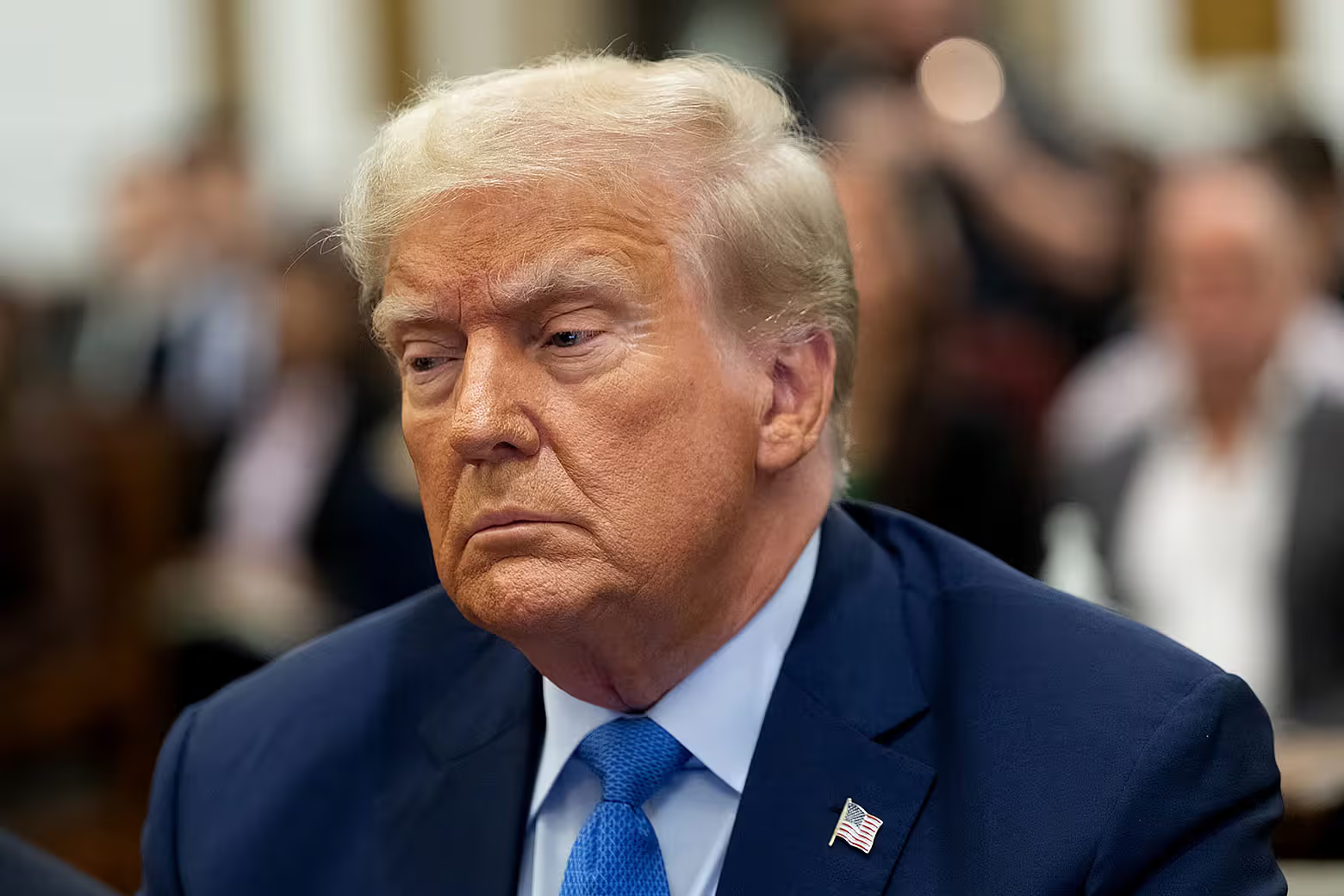Trump’s Conviction: A Former President Now with a Felony Record
Trump was convicted on 34 felony counts of falsifying business records—a verdict that cements his place in history, not just as a polarizing political figure, but as the first U.S. president to carry the weight of a felony conviction.

New York, NY — One thing is certain: Trump’s place in history is undeniable, not just as a former president but as a felon with a capital “F.” Donald J. Trump has always been a figure of superlatives, both self-proclaimed and historical. From billionaire businessman to reality TV star, and later, to the 45th president of the United States, Trump has consistently shattered norms. Today, he adds another unprecedented title to his résumé: convicted felon.
Following weeks of dramatic courtroom proceedings, Trump was convicted on 34 felony counts of falsifying business records—a verdict that cements his place in history, not just as a polarizing political figure, but as the first U.S. president to carry the weight of a felony conviction. The implications of this outcome ripple far beyond the courtroom, sending shockwaves through the political and legal landscapes.
The Charges and Conviction
At the heart of Trump’s conviction lies a meticulously constructed case by Manhattan District Attorney Alvin Bragg’s office. The charges stemmed from alleged hush-money payments made during Trump’s 2016 presidential campaign to suppress damaging information, including payments to adult film actress Stormy Daniels. Prosecutors argued that Trump orchestrated a scheme to falsify financial records in an attempt to conceal the payments and their purpose, constituting a violation of state and federal laws.
The jury, composed of 12 ordinary citizens tasked with weighing extraordinary allegations, delivered a guilty verdict on all counts. The case itself represents a rare instance of a high-profile figure being held accountable under New York’s penal code for business-related crimes.
Trump’s defense team mounted an aggressive challenge, portraying the trial as politically motivated and asserting that the charges lacked merit. Yet, the evidence—a trail of emails, ledger entries, and testimony from former Trump confidants like Michael Cohen—proved too compelling to ignore.
The Sentence: Unprecedented and Controversial
Judge Juan Merchan’s decision to impose an unconditional discharge—a sentence with no jail time, probation, or fines—was a calculated one, aimed at balancing the need for accountability with the unique constraints surrounding a former and potentially future president.
“Justice must be impartial, but it must also recognize the extraordinary circumstances of this case,” Merchan said during sentencing. The judge underscored that Trump’s status as a felon carries its own weight, particularly given the public scrutiny that will follow him indefinitely.
Legal scholars have debated the implications of such a sentence. On one hand, Trump’s conviction alone sets a precedent that no individual, regardless of status, is above the law. On the other hand, critics argue that the lack of tangible punishment undermines the principles of equal justice.
A Permanent Mark on Trump’s Legacy
In New York, felony convictions are not eligible for expungement, meaning Trump’s record as a felon is permanent. The conviction may eventually be sealed after eight years, but the historical and reputational damage is irreversible. This legal status brings significant, if limited, consequences.
For instance, Trump’s New York firearm permit has already been revoked. Additionally, he is barred from serving in certain state-level roles, though his eligibility to hold federal office, including the presidency, remains intact under the Constitution.
“Donald Trump’s conviction creates a constitutional paradox,” said legal analyst Maya Robinson. “He remains free to run for and serve as president, yet he’s legally categorized alongside those who’ve committed serious crimes.”
The Political Fallout
The conviction is a lightning rod for political division. Trump’s supporters view the trial as evidence of a “deep state” conspiracy aimed at silencing their champion. They’ve doubled down on their support, with Trump leveraging the conviction as a rallying cry for his 2024 presidential campaign.
Meanwhile, his critics see the verdict as long-overdue accountability for a man who has long operated with impunity.
“This case sends a message: no matter how powerful you are, the law applies to you,” said District Attorney Alvin Bragg. Yet, even Bragg’s supporters acknowledge the conviction raises thorny questions about justice, power, and privilege.
What’s Next for Trump?
Trump’s legal troubles are far from over. He faces additional investigations and lawsuits, including a federal probe into his handling of classified documents and a civil case in Georgia over alleged election interference.
His defense team has vowed to appeal the New York conviction, a process that could drag on for years. In the meantime, Trump is expected to weaponize the verdict in his campaign rhetoric, casting himself as a martyr for his movement.
A Legacy Defined by Contradictions
Donald Trump’s ascent to the presidency was marked by defiance of norms; his return to the political stage as a convicted felon represents the ultimate challenge to America’s legal and political systems. For many, his conviction symbolizes the resilience of the rule of law. For others, it exposes the limitations of a justice system unequipped to deal with individuals of Trump’s stature.
As Trump himself said during the trial, “They’re not coming after me—they’re coming after you. I’m just in the way.” Whether those words were prophetic or self-serving, they capture the essence of a man whose life, legacy, and now legal status continue to dominate the national conversation.
Trump’s place in history is undeniable, not just as a former president but as a felon with a capital “F.”






